Overview
Elizabeth Métis Settlement received $80,000 to complete a Climate Risk and Resilience Assessment. Grant proceeds were provided by MCCAC through the Climate Resilience Capacity Building Program, funded by the Government of Alberta.
Elizabeth Métis Settlement retained AECOM to complete the assessment using the Public Infrastructure Engineering Vulnerability Committee (PIEVC) High Level Screening Guide (HLSG) & ISO 31000 risk management standard.
The assessment is informed by both Western scientific approaches to risk assessment, as well as traditional knowledge and lived experiences of climate impacts within the community. Community consultation and a workshop were conducted to build capacity around climate resilience and to support the development of a plan that aligned with community perspectives and priorities.
Approach
Elizabeth Métis Settlement is situated on over 25,000 hectares of land south of Cold Lake. Home to over 650 people, the Settlement is actively working to pursue opportunities for economic development, safeguard community wellbeing and provide a good quality of life to residents, and ensure overall community resilience.
This Climate Risk and Resilience Assessment was completed to evaluate the risks that climate-related hazards may have on Elizabeth Métis Settlement infrastructure, its people, and the natural environment and to recommend actions to decrease the impact of these hazards.
Ten groups of assets were evaluated within the scope of this study: people; greenhouses and gardens; fuel station and convenience store; water treatment plant and impacts to drinking water supply and quality; wastewater disposal; landfill; community fire protection assets and impacts from wildfire; communal and residential buildings; the campsite; and the Selina SAGD facility located within the Settlement.
Results
The impacts of climate change were determined for each of the asset groups for two time horizons, the 2050s and 2080s. Adaptation actions were categorized as design measures, operations & maintenance measures, or policy measures. The recommended adaptation actions are designed to limit financial and operational impacts, improve health and wellbeing, as well as ensure the continuation of traditional ways of life within the Settlement.
The plan highlights the impact of climate change on community fire protection, the gardens and greenhouse, drinking water supply, water quality, fuel consumption and building energy use.
The assessment found that increased high temperature events and heat waves expose the Settlement infrastructure, community members, and natural environment to a high risk of wildfire. Heavy rainfall, flooding, and freezing rain also pose a risk to infrastructure and community health and safety.
To reduce wildfire risk, the report recommends the continued practice of cultural burning, tree thinning, and litter management. The plan describes how cultural burning is a well-established practice in many Indigenous communities, and highlights that in addition to reducing wildfire risk, it has co-benefits including improved berry production and quality and support for hunting and trapping activities.
Recommended adaptation actions also include considering drought and fire-resistant species in reforestation or landscaping, establishing an emergency cooling centre for residents in the case of heat wave, and developing an Emergency Preparedness and Management Plan.
Benefits
As climate change alters landscapes and ecosystems, the longevity of many traditional land use activities will be impacted. A changing climate also poses threats to the built environment, health and safety, and operations and services. In taking a proactive approach to climate adaptation, this Climate Risk and Resilience Assessment positions the Settlement to prepare for and respond to climate risks. The study outlines tangible actions to respond to risks and provides a roadmap to inform future development projects in Elizabeth Métis Settlement.
We are thrilled to have successfully completed this project and taken an important step forward in building resilience against climate change in our Settlement. The Climate Risk and Resilience Assessment and engagement sessions brought together our members, traditional knowledge and Western science to develop a plan that truly meets our needs. With the recommendations in hand, we are better equipped to protect our assets and our people in the face of climate threats. We look forward to a more sustainable and resilience future for Elizabeth Métis Settlement.
Sharna Collins, Administrator
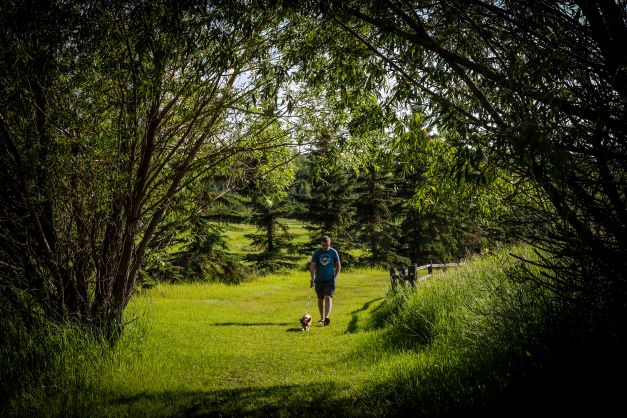
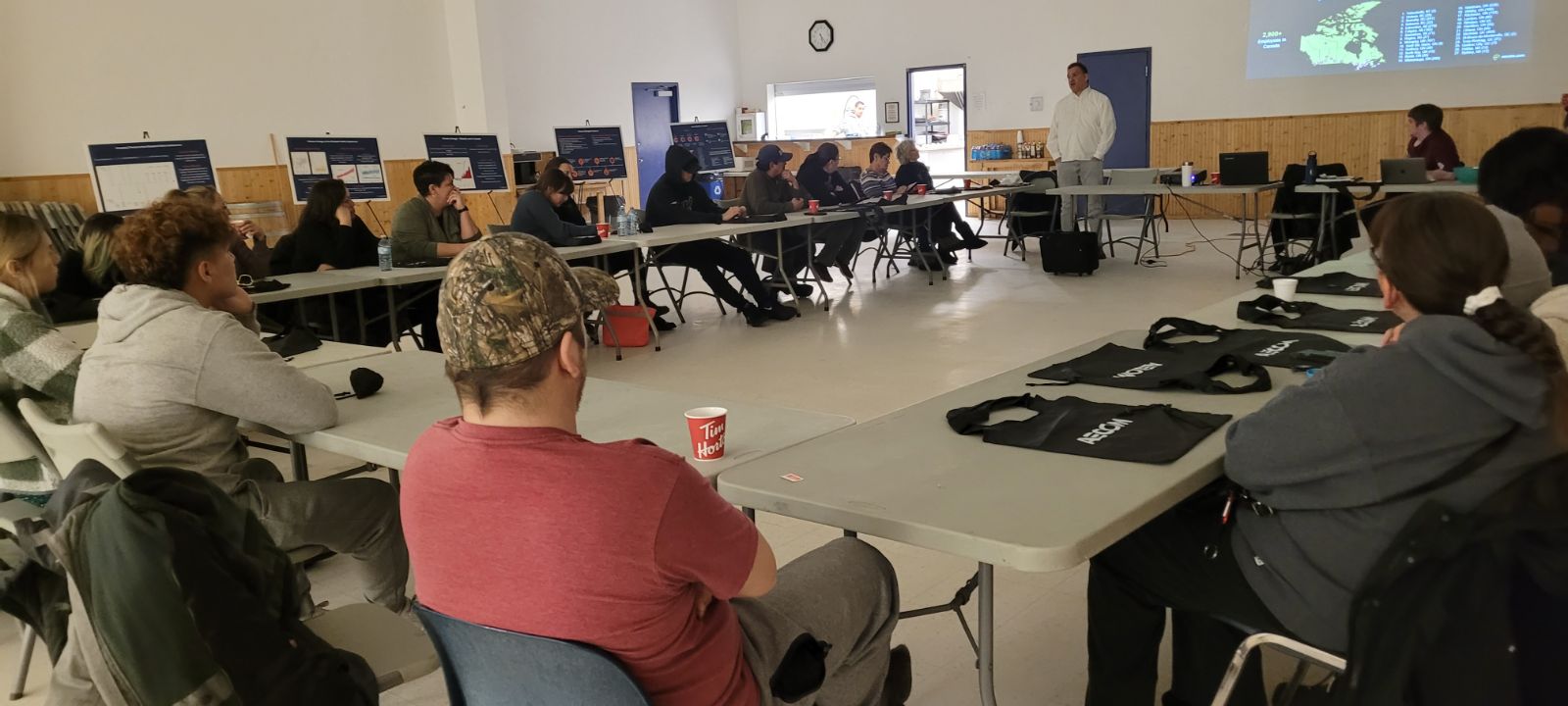


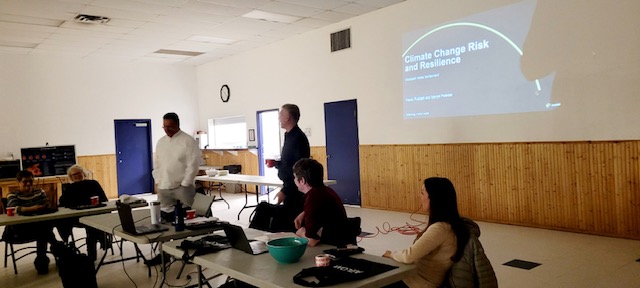
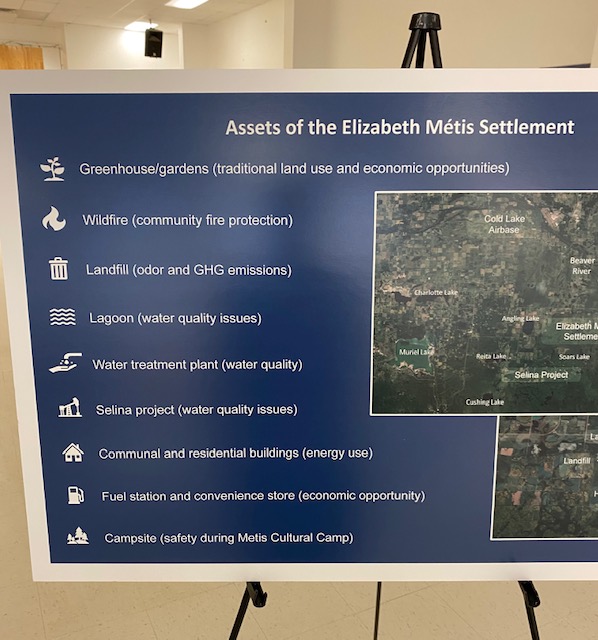
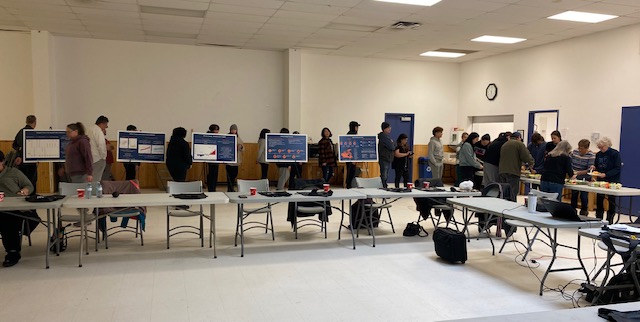

You must be logged in to post a comment.